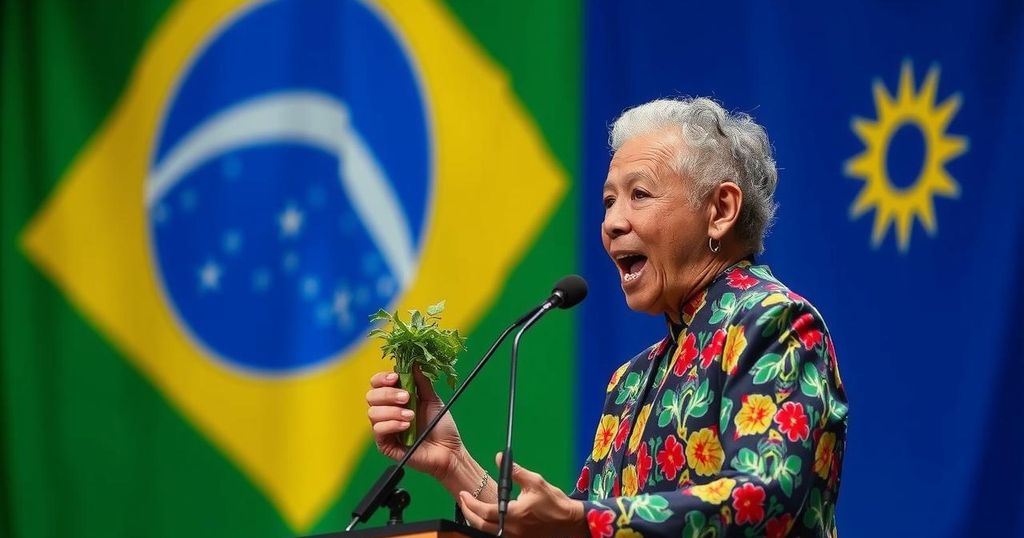Brazilian President Luiz Inácio Lula da Silva inaugurated a Global Alliance Against Hunger and Poverty at the G20 summit in Rio de Janeiro, emphasizing the unacceptability of global hunger amidst vast food production. Despite initial hesitancy from Argentina, 81 countries backed the initiative, highlighting the urgency to address this humanitarian crisis. Lula’s call for decisive action sets a hopeful tone for international collaboration against poverty and inequality.
During the G20 summit in Rio de Janeiro, Brazilian President Luiz Inácio Lula da Silva initiated a campaign to address global hunger, labeling it a dire emblem of collective human failure. Hosting the summit, which saw representatives from all G20 nations except Russia and Saudi Arabia, Lula emphasized the urgency of tackling hunger and poverty, citing alarming statistics from the UN regarding undernourishment worldwide. He articulated that despite abundant food production, 733 million people remain hungry globally, stressing this simply cannot be accepted. In his address at the Museum of Modern Art, Lula reflected on his first encounter at the G20 in 2008, lamenting how conditions have deteriorated since that time. He pointed to numerous global crises including armed conflicts, mass displacement, and widening inequalities, asserting that hunger remains the most shameful issue facing humanity. Lula’s proposal, the Global Alliance Against Hunger and Poverty, garnered support from 81 countries, though tensions arose with Argentina concerning its initial hesitancy. The summit also revealed the strained relationship between Lula and Argentinian President Javier Milei, who previously criticized Lula sharply. Although Argentina eventually joined the initiative after negotiations, its government has shown dissent on several policy ideas proposed by Brazil, including taxation reforms aimed at wealthier classes. The alliance attracted a diverse coalition of 148 supporters, encompassing nations, international organizations, financial institutions, and NGOs, indicating a robust commitment to addressing hunger. As the summit progressed, Lula expressed hope that decisive actions would emerge from the discussions.
The G20, a group comprising major global economies, convenes periodically to discuss and coordinate policies on international economic and financial issues. This meeting, led by Brazil’s rotating presidency, marks a critical moment to spotlight hunger and poverty as pressing global challenges. The initiative to create the Global Alliance Against Hunger and Poverty reflects Lula’s commitment to mobilizing international support, linking humanitarian concerns with economic and social equity. Lula’s appeal indicates the necessity for collective action across nations to combat widespread hunger, juxtaposed against a backdrop of increasing global disparities and conflicts.
In conclusion, President Lula’s launch of the Global Alliance Against Hunger and Poverty at the G20 summit reflects a significant effort to confront urgent humanitarian challenges. The initiative’s broad support indicates a collective willingness to tackle the issues of hunger, which strikes at the heart of global inequality. As leaders convene, there is hope for meaningful actions that translate discussions into concrete solutions, reaffirming the commitment to combat poverty on a global scale.
Original Source: www.theguardian.com






